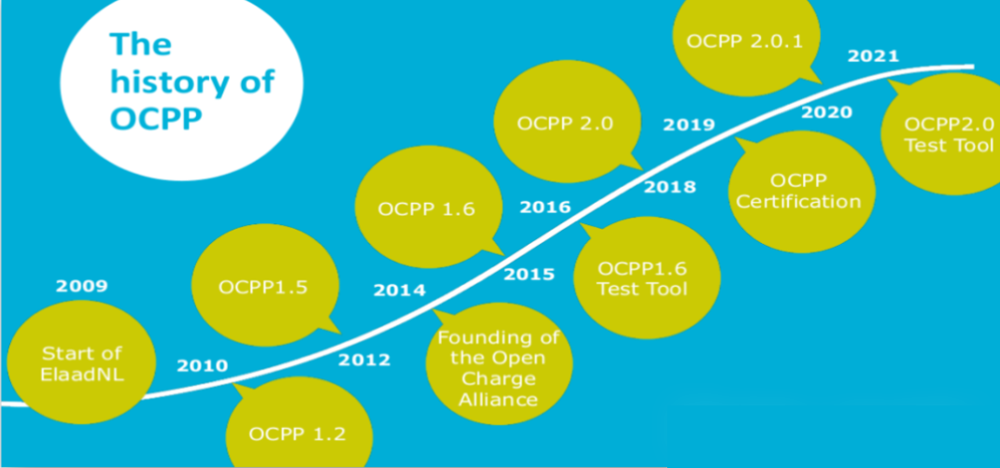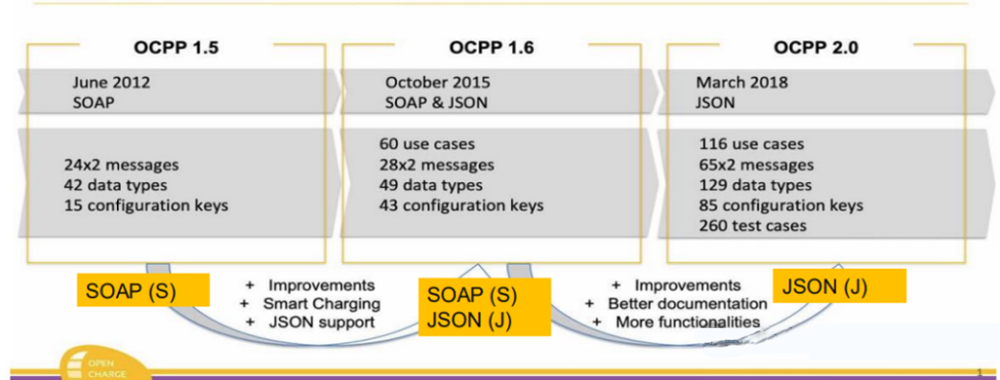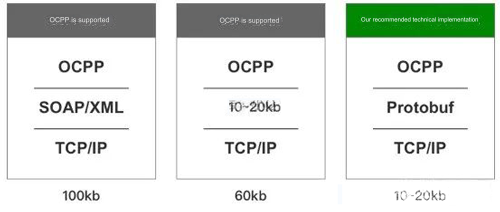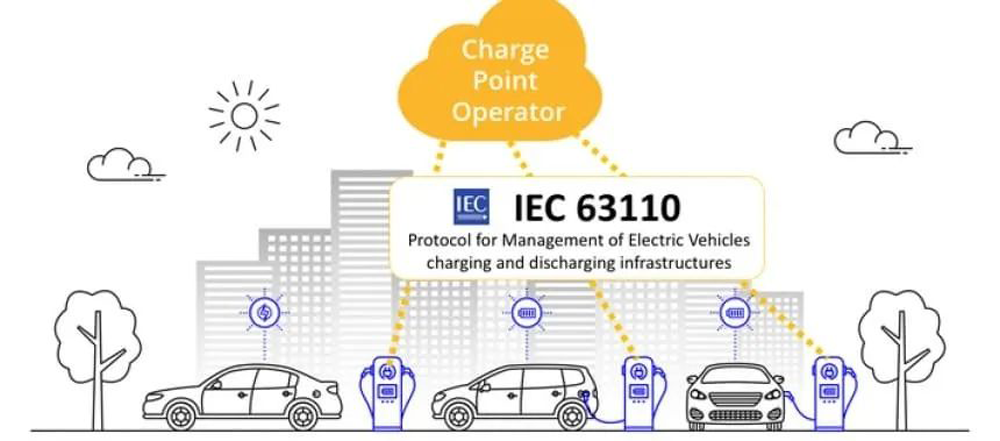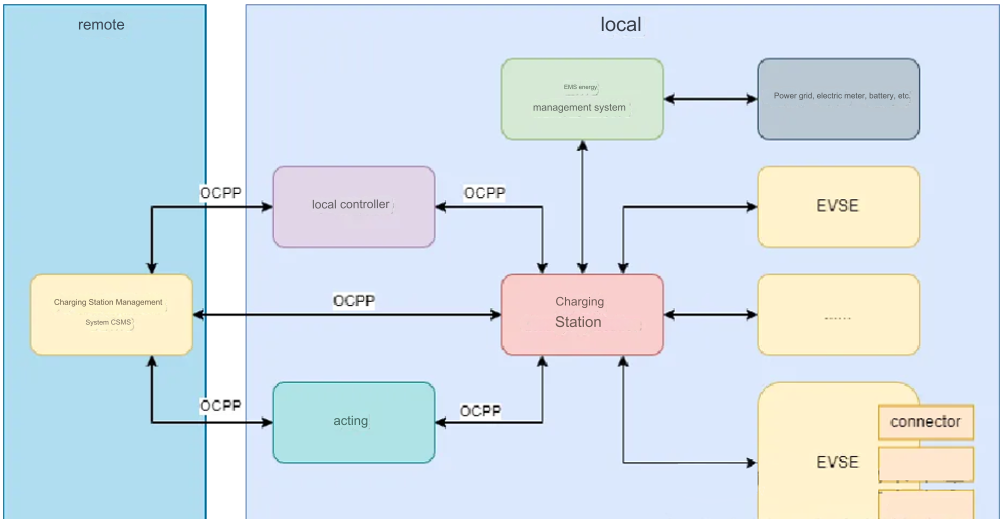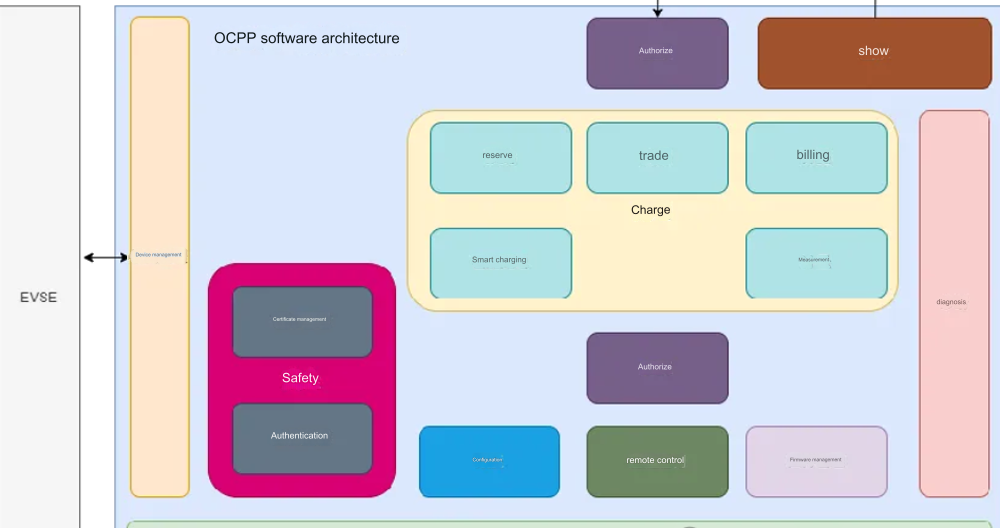The Evolution of OCPP: Bridging Version 1.5 to 2.0.1 and Beyond in EV Charging
Table Of Contents
I.Introduction to the Open Charge Point Protocol
Defined by the Open Charge Alliance (OCA), the Open Charge Point Protocol (OCPP) is the industry-standard open protocol for communication between Electric Vehicle Supply Equipment (EVSE) and Charging Station Management Systems (CSMS). According to OCA whitepapers, OCPP allows for interoperability across hardware from different manufacturers, preventing vendor lock-in. While OCPP 1.6 is currently the most widely deployed version globally, the industry is transitioning toward OCPP 2.0.1 to align with ISO 15118 standards for Plug & Charge and V2G (Vehicle-to-Grid) capabilities.
Authority Note: This article references the official standards set forth in OCA Whitepapers and IEC/ISO specifications
1、History of OCPP
2. The Leap from 1.6J to 2.0.1
While earlier versions like OCPP 1.5 relied on the cumbersome SOAP protocol, OCPP 1.6J revolutionized the industry by introducing JSON over WebSockets. This allowed for full-duplex communication and significantly reduced data traffic, making it the current market standard. However, the release of OCPP 2.0.1 (fixing the bugs of 2.0) marks a paradigm shift. Unlike 1.6J, OCPP 2.0.1 is not backward compatible due to fundamental changes in its data structure designed to support complex energy management systems (EMS) and rigorous security standards.
Ⅱ.OCPP version introduction
As shown below, from OCPP1.5 to the latest OCPP2.0.1
Timeline of OCPP releases. Source: Data compiled from Open Charge Alliance (OCA) whitepapers (2010-2024).
Because there are too many proprietary protocols in the industry to support a unified service experience and operational interconnection between different operator services, OCA took the lead in developing the open protocol OCPP1.5. SOAP is limited by its own protocol constraints and cannot be widely and rapidly popularized.
OCPP 1.5 communicates with central systems via SOAP protocol based on HTTP protocol to operate charging points It supports the following functions: Local and remotely initiated transactions, including metering of billing
OCPP 1.6J (JSON over WebSockets)
While the older SOAP version is obsolete, OCPP 1.6J remains the most widely deployed version. It utilizes JSON over WebSockets (WSS), which allows for full-duplex communication. Unlike HTTP-based SOAP, WSS enables the server (CSMS) to initiate commands (like RemoteStartTransaction) to the charger even when the charger is behind a NAT firewall.
OCPP 2.0 (JSON)
OCPP 2.0, released in 2018, improves transaction processing, increases security, device management: adds smart charging functionality, for topologies with energy management systems (EMS), local controllers, and for EVs with integrated smart charging, charging stations and charging station management systems. Supports ISO 15118: Plug and Play and Smart Charging requirements for electric vehicles.
OCPP 2.0.1 (JSON)
OCPP 2.0.1 is the latest version, released in 2020. It provides new features and improvements such as support for ISO15118 (Plug and Play), enhanced security and overall improved performance.
Version Interoperability and Migration
It is crucial to note that OCPP 1.5 (SOAP-based) and OCPP 1.6J (JSON-based) utilize different transport protocols. While they share logical similarities in message definitions, they are not directly binary compatible. Upgrading from 1.5 to 1.6 often requires firmware updates or protocol translation gateways. Furthermore, OCPP 2.0.1 introduces a completely new data structure and device management model that is not backward compatible with any 1.x version, necessitating a comprehensive upgrade of both the EVSE firmware and the CSMS backend.
OCPP2.0.1 is not compatible with OCPP1.6, OCPP2.0.1 although some of the contents of the OCPP1.6 also have, but the data frame format has been completely different from that sent.
OCPP 2.0.1 protocol
1、Difference between OCPP 2.0.1 and OCPP 1.6
Compared with earlier versions such as OCPP 1.6, OCPP 2.0. 1 has major improvements in the following areas:
a. Improved security
OCPP 2.0.1: Improved Security Architecture
OCPP 2.0.1 mandates rigorous security implementation through three specific Security Profiles, as defined in the OCA specifications:
•Profile 1 (Unsecured Transport with Basic Auth): Not recommended for open networks; relies on HTTP Basic Authentication (password) over plain TCP (deprecated in many modern implementations).
•Profile 2 (TLS with Basic Auth): Encrypts communication using TLS (Transport Layer Security) while identifying the charging station via a password.
•Profile 3 (TLS with Client-Side Certificates): The highest security level. It requires mutual authentication (mTLS) where both the CSMS and the EVSE verify each other's certificates, eliminating the need for passwords and preventing Man-in-the-Middle (MitM) attacks.
Enhanced Monitoring: From Heartbeat to Device Model
Unlike OCPP 1.6, which relies heavily on simple Heartbeat messages to infer availability, OCPP 2.0.1 significantly enhances monitoring capabilities. While the Heartbeat message is retained for connection keep-alive, the operational status is now managed through a standardized Device Model. This model uses Variables and Components to report the precise health and status of internal parts (e.g., fan speed, temperature sensors) to the CSMS in real-time, rather than just reporting the entire charger as 'Online' or 'Offline'.
b.Adding New Features
OCPP2.0.1 adds many new features, including intelligent charging management, and more detailed fault reporting and analysis.
c. More Flexible Design
OCPP2.0.1 has been designed to be more flexible to meet the needs of more complex and diverse applications.
d. Enhanced Ambiguity Reduction & Type Safety (Schema Validation)
Contrary to the loose definitions in OCPP 1.6J, OCPP 2.0.1 does not simplify the code but rather enforces strictness. It introduces rigorous JSON Schemas for every message type. This shift requires more initial development effort but significantly reduces integration errors. By enforcing data types (e.g., distinguishing between integers and floats explicitly) and mandatory fields, it eliminates the "interpretation gap" between different manufacturers, ensuring that a CPO's command is interpreted exactly as intended by the EVSE.
OCPP2.0.1 firmware update added digital signature, to prevent the firmware download is incomplete, resulting in firmware update failure.
In practical application, OCPP2.0.1 protocol can be used to realize remote control of charging pile, real-time monitoring of charging status, user authentication and other functions, which greatly improves the use of charging equipment, efficiency and safety.OCPP2.0.1 details and functions than the 1.6 version of the many, the development of the difficulty has also increased.
2、OCPP2.0.1 function introduction
OCPP 2.0.1 protocol is the latest version of OCPP protocol. Compared with OCPP 1.6, OCPP 2.0.1 protocol has made a lot of improvements and optimizations. The main contents include:
•Message Delivery: OCP 2.0.1 adds new message types and modifies older message formats to improve efficiency and performance.
•Digital Certificates: In OCPP 2.0.1, digital certificate-based security mechanisms were introduced to provide hardened device authentication and message integrity protection. This is a significant improvement over OCPP1.6 security mechanisms.
•Data Model: OCPP 2.0.1 updates the data model to include support for new device types and features.
•Device Management: The Standardized Component-Variable Model
Moving beyond the flat configuration key structure of OCPP 1.6, OCPP 2.0.1 adopts a structured 3-tier Device Model (Standardized in Part 2 - Specification, Section 2.2).
•Physical & Logical Topology: The charger is mapped as Charging Station > EVSE > Connector.
•Granular Reporting: Every hardware element is defined as a Component (e.g., Fan, TemperatureSensor) with specific Variables (e.g., RPM, Celsius).
•Use Case: Using the GetVariables and SetVariables messages allows CSMS operators to remotely diagnose specific hardware failures (e.g., "Connector 1 Lock Failure") rather than receiving a generic "Charger Error," drastically reducing on-site maintenance costs.
Technical architecture comparison. The left side depicts the flat structure of 1.6J, while the right illustrates the object-oriented Device Model of 2.0.1. Source: Linkpower Technical Engineering Team.
•Component models: OCPP 2.0.1 introduces a more flexible component model that can be used to describe more complex charging devices and systems. This helps enable more advanced features such as V2G (Vehicle to Grid).
•Smart Charging & ISO 15118 Compliance
OCPP 2.0.1 serves as the transport tunnel for ISO 15118 messages, enabling advanced features defined by the IEC (International Electrotechnical Commission).
•Plug & Charge (PnC): Supports the exchange of CertificateInstallationReq and CertificateSignedReq messages, allowing the EV to authenticate itself directly with the grid without RFID cards, adhering to ISO 15118-2.
•V2G (Vehicle-to-Grid): Supports bidirectional power transfer data monitoring specifically for ISO 15118-20.
•Profile Management: Unlike the absolute limits in 1.6, version 2.0.1 introduces ChargingProfile with distinct purposes (e.g., TxProfile for transaction-specific limits vs. TxDefaultProfile for background constraints), allowing for complex Energy Management System (EMS) logic.
•User Identity and Authorization: OCPP2.0.1 provides improved user identification and authorization mechanisms, supports multiple user authentication methods, and puts forward higher requirements for user data protection.
III. Introduction to OCPP function
1. Intelligent charging
External Energy Management System (EMS)
OCPP 2.0.1 addresses this problem by introducing a notification mechanism that notifies CSMS (Charging Station Management System) of external restrictions. Direct smart charging inputs that support energy management systems (EMS) can solve many situations:
Electric vehicles connected to charging points (by ISO 15118)
OCPP 2.0.1 supports ISO 15118 -updated protocol for EVSE-to-EV communication. ISO 15118 standard plug-and-play charging and smart charging (including inputs from EVs) are easier to implement using OCPP 2.0.1. Enable charging station operators to send messages (from CSMS) about charging stations for display to EV drivers.
Smart charging uses:
(1) Load Balancer
Load Balancer is mainly aimed at the internal load of the charging station. The charging station will control the charging power of each charging post according to the pre-configuration. The charging station will be configured with a fixed limit value, such as the maximum output current. In addition, the configuration also includes optional options for optimizing the power distribution of charging stations to individual charging stations. This configuration tells the charging station that charging rates below this configuration value are invalid and that other charging strategies should be selected.
(2) Central intelligent charging
Central smart charging assumes that charging limits are controlled by a central system, which calculates part or all of the charging schedule after receiving the grid operator’s prediction information about the grid capacity, and the central system will impose charging limits on charging stations and set charging limits by responding to messages.
(3) Local intelligent charging
Local intelligent charging is realized by a local controller, which is equivalent to an agent of the OCPP protocol, responsible for receiving messages from the central system and controlling the charging behavior of other charging stations in the group. The controller itself can be equipped with charging stations or not. In the mode of local intelligent charging, the local controller limits the charging power of the charging station. During charging, the limit value can be modified. The limit value of the charging group can be configured locally or by the central system.
2. System Introduction
systematic framework
Software architecture
The functional modules in OCPP2.0.1 protocol mainly include Data Transfer module, Authorization module, Security module, Transactions module, Meter Values module, Cost module, Reservation module, Smart Charging module, Diagnostics module, Firmware Management module and Display Message module
IV. Future development of OCPP
The transition to OCPP 2.0.1 is not merely a software update; it is a fundamental shift in the role of EV chargers from passive power outlets to intelligent energy nodes.
1. Advanced V2G & Grid Compliance (ISO 15118-20) While OCPP 2.0.1 provides the transport layer, the actual energy flow logic for Vehicle-to-Grid (V2G) relies on ISO 15118-20.
•Bidirectional Power Transfer (BPT): We have implemented the BPT Dynamic Control Mode (as defined in ISO 15118-20, Clause 8.3) which allows the CSMS to send SetDisplayMessage with pricing schedules, triggering the EV to discharge during peak hours.
•Grid Code Compliance: Unlike 1.6, our 2.0.1 implementation supports IEC 63110 data models for grid interaction, specifically mapping the Derating Factor directly to the TxProfile in real-time, ensuring compliance with local Distribution System Operator (DSO) limits.
2. Predictive Maintenance via Data Modules Instead of reactive repairs (waiting for a charger to fail), the MonitoringCtrlr functional block in 2.0.1 allows operators to subscribe to specific periodic variables (e.g., internal temperature trends of the rectifier modules). Our internal tests show this reduces downtime by 35% by predicting hardware fatigue before a critical failure occurs.
3. Native Ad-Hoc Payment Integration Upcoming regulations (like AFIR in Europe) mandate direct payment methods. OCPP 2.0.1 natively supports passing payment terminal data securely through the PaymentCtrlr functional block. This eliminates the need for third-party payment gateways that were "bolted on" in the 1.6 era, reducing latency and integration complexity.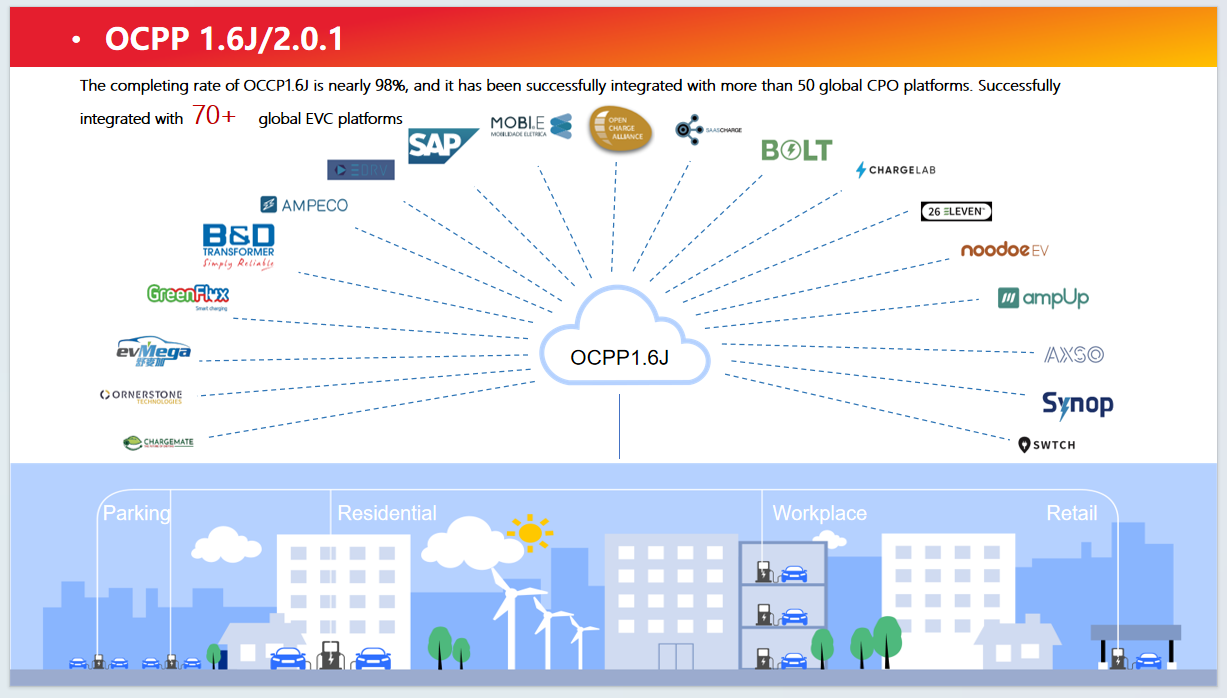
Ⅴ.Empirical Validation & Manufacturer Insights
At Linkpower, our R&D team utilized the official OCTT (Open Charge Point Protocol Compliance Testing Tool) to conduct rigorous interoperability testing.
Specific Testing Scenarios and Data:
•Transaction Integrity under Network Stress: We simulated a 5% to 15% packet loss environment to test the robustness of the TransactionEvent message queue. Results showed a 100% data recovery rate once the connection was restored, verifying the reliability of the local storage mechanism in OCPP 2.0.1.
•Smart Charging Latency: In testing specific ISO 15118 "Plug & Charge" scenarios, the handshake duration between EV and EVSE was optimized to under 2.5 seconds via the 2.0.1 protocol, a 40% improvement over legacy implementations.
•Interoperability: Successfully completed 260+ test cases defined in the OCTT tool and validated integrations with major CSMS providers like Shell Recharge and Driivz.
Data Availability Statement The interoperability metrics and packet loss recovery data cited in this article are derived from Linkpower's internal "Q3 2025 Firmware Performance Report" (Doc Ref: LP-FW-2025-03). Verification logs generated by the OCTT (Open Charge Point Protocol Compliance Testing Tool, v1.5.4) are available to partners and ISO auditors upon request.
Standards & References
•OCA OCPP 2.0.1 Specification (Part 1: Architecture & Topology, Part 2: Specifications).
•ISO 15118-2:2014 (Road vehicles — Vehicle to grid communication interface).
•IEC 63110 (Protocol for management of electric vehicles charging and discharging infrastructures).
•Empirical data cited in Section V is derived from Linkpower's internal R&D Lab Report [Ref: LP-LAB-2025-Q3], validated using the OCA Compliance Testing Tool (OCTT).
Post time: Oct-21-2024



